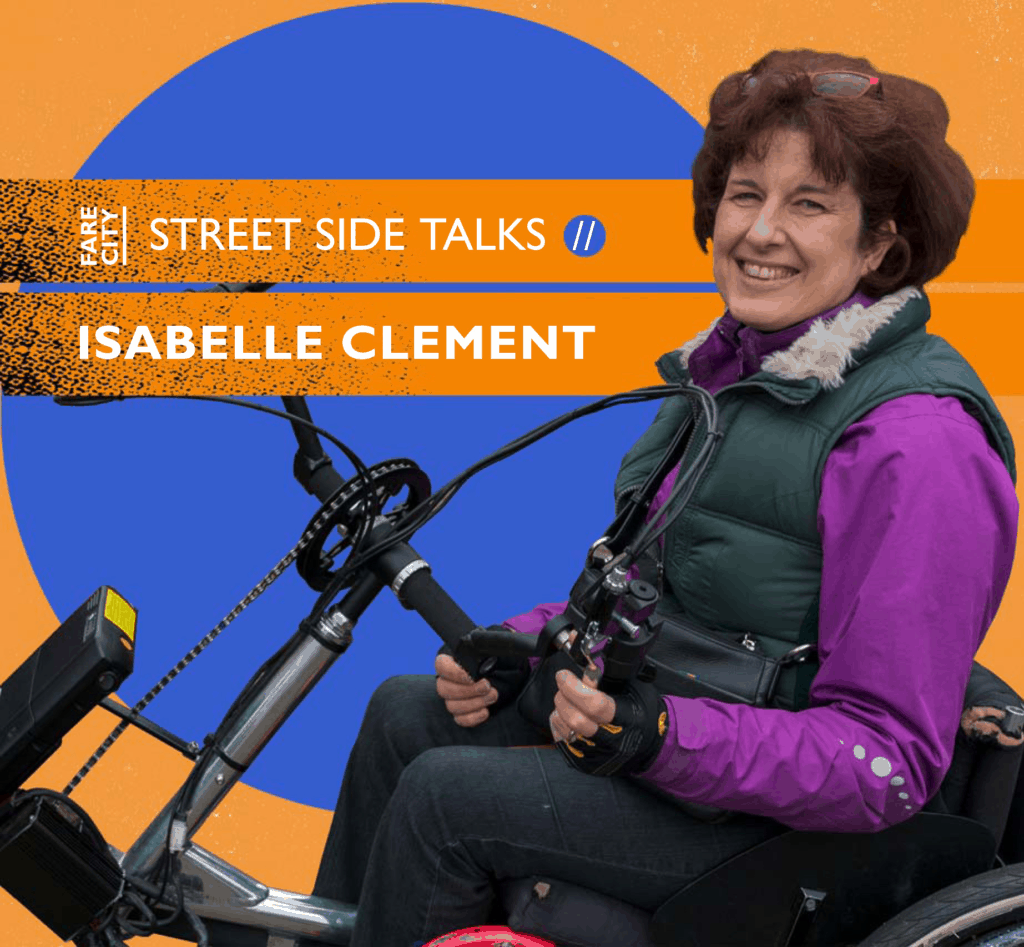
This year, we have teamed up with city transport think tank Fare City. Not only did they help us redesign and update our Guide to Inclusive Cycling (now in its 4th edition, unveiled this week), but they also interviewed our Director Isabelle Clement as part of their Street Side Talks podcast series last week.
During the podcast episode Isabelle talks about her own discovery of cycling as a Disabled person; she also explains Wheels for Wellbeing’s unique perspective and how its work is impacting the shape of cycling in the UK, for the benefit of many groups of cyclists and potential cyclists. In particular, she talks about her pride in how much influence Wheels for Wellbeing has been able to have on the contents of the UK Government’s new cycle design guidance (released in July 2020). However, much remains for the charity to do if Disabled people are going to be able to cycle as far and as often as they wish to.
Isabelle said: “All the services around cycling need to continue to be pushed to become inclusive; so for example, cycle hire provision…a lot of it happens in the private sector, but also a lot of it happens in the public sector. There is in this country such a thing as the Public Sector Equality Duty, and if you provide a publicly-funded service, [then] it should be available to all.”
“[If you build cycling infrastructure] you have to do your job [..] thinking of the fact that there are all types of cycles and all types of cyclists out there for you to provide for”
Isabelle and the podcast host, Richard Lambert also chatted about plans for future additions to the guide and how Wheels for Wellbeing intends to learn more and write more about the specific barriers faced for example by people with mental health issues, autism and hearing impairments as cyclists – whilst continuing to build upon the charity’s existing knowledge of the many physical, legal and societal barriers to cycling. Plans also include making the Guide more accessible, modular and searchable in future years, so that everyone who could potentially benefit from it, are able to.
You can listen to the podcast here. We hope you enjoy it!
